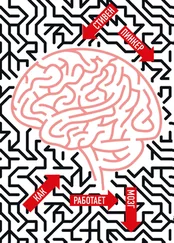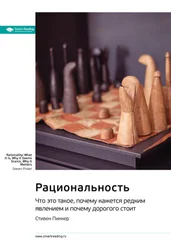Pinker, S. 1979. Formal models of language learning. Cognition, 7, 217–283.
Pinker, S. 1984a. Language learnability and language development (Reprinted with a new introduction, 1996). Cambridge, Mass.: Harvard University Press.
Pinker, S. 1984b. Visual cognition: an introduction. Cognition, 18, 1–63.
Pinker, S. 1989. Learnability and cognition: The acquisition of argument structure. Cambridge, Mass.: MIT Press.
Pinker, S. 1990. A theory of graph comprehension. In R. Friedle (Ed.), Artificial intelligence and the future of testing. Hillsdale, N. J.: Erlbaum.
Pinker, S. 1991. Rules of language. Science, 253, 530–535. Pinker, S. 1994. The language instinct. New York: HarperCollins.
Pinker, S. 1996. Language learnability and language development revisited, Language learnability and language development. Cambridge, Mass.: Harvard University Press.
Pinker, S. 1997. How the mind works. New York: Norton.
Pinker, S. 1998. Still relevant after all these years (Review of Darwin's The expression of the emotions in man and animals, Third Edition"). Science, 281, 522–523.
Pinker, S. 1999. Words and rules: The ingredients of language. New York: HarperCollins.
Pinker, S. 2001a. Four decades of rules and associations, or whatever happened to the past tense debate? In E. Dupoux (Ed.), Language, the brain, and cognitive development. Cambridge, Mass.: MIT Press.
Pinker, S. 2001b. Talk of genetics and vice-versa. Nature, 413, 465–466.
Pinker, S., & Mehler, J. (Eds.) 1988. Connections and symbols. Cambridge, Mass.: MIT Press.
Pinker, S., & Prince, A. 1988. On language and connectionism: Analysis of a Parallel Distributed Processing model of language acquisition. Cognition, 28, 73–193.
Pinker, S., & Prince, A. 1996. The nature of human concepts: Evidence from an unusual source. Communication and Cognition, 29, 307–361.
Plamenatz, J. 1963. Man and society: A critical examination of some important social and political theories form Machiavelli to Marx (Vol. 2). London: Longman.
Plamenatz, J. 1975. Karl Marx's philosophy of man. New York: Oxford University Press.
Plomin, R. 1990. The role of inheritance in behavior. Science, 248, 183–248. Plomin, R. 1991. Continuing commentary: Why children in the same family are so different from one another. Behavioral and Brain Sciences, 13, 336–337.
Plomin, R. 1994. Genetics and experience: The interplay between nature and nurture. Thousand Oaks, Calif.: Sage.
Plomin, R., & Daniels, D. 1987. Why are children in the same family so different from one another? Behavioral and Brain Sciences, 10, 1–60.
Plomin, R., DeFries, J. C., & Fulker, D. W. 1988. Nature and nurture in infancy and early childhood. New York: Cambridge University Press.
Plomin, R., DeFries, J. C., McClearn, G. E., & McGuffin, P. 2001. Behavior genetics 4th ed. New York: Worth.
Plomin, R., DeFries, J. C., McClearn, G. E., & Rutter, M. 1997. Behavioral genetics 3rd ed. New York: W. H. Freeman.
Plomin, R., Owen, M. J., & McGuffin, P. 1994. The genetic basis of complex human behaviors. Science, 264, 1733–1739.
Polti, G. 1921/1977. The thirty-six dramatic situations. Boston: The Writer, Inc.
Pons, T. M., Garraghty, P. E., Ommaya, A. K., Kaas, J. H., Taub, E., & Mishkin, M. 1991. Massive cortical reorganization after sensory deafferentation in adult macaques. Science, 1991, 1857–1860.
Pope, G. G. 2000. The biological bases of human behavior. Needham Heights, Mass.: Allyn & Bacon.
Pratto, F., & Bargh, J. A. 1991. Stereotyping based on apparently individuating information: Trait and global components of sex stereotypes under attention overload. Journal of Experimental Social Psychology, 27, 26–47.
Preuss, T. 1995. The argument from animals to humans in cognitive neuroscience. In Gazzaniga (Ed.), The cognitive neurosciences. Cambrdige, Mass.: MIT Press.
Preuss, T. M. 2000. What's human about the human brain? In M. S. Gazzaniga (Ed.), The new cognitive neurosciences. Cambridge, Mass.: MIT Press.
Preuss, T. M. 2001. The discovery of cerebral diversity: An unwelcome scientific revolution. In D. Falk & K. Gibson (Eds.), Evolutionary anatomy of the primate cerebral cortex. New York: Cambridge University Press.
Price, M. E., Cosmides, L., & Tooby, J. In press. Punitive sentiment as an anti-free rider psychological device. Evolution and Human Behavior.
Proctor, R. 1999. The Nazi war on cancer. Princeton, N. J.: Princeton University Press.
Provine, R. R. 1993. Laughter punctuates speech: Linguistic, social, and gender contexts of laughter. Ethology, 95, 291–298.
Putnam, H. 1973. Reductionism and the nature of psychology. Cognition, 2, 131–146.
Quartz, S. R., & Sejnowski, T. J. 1997. The neural basis of cognitive development: A constructivist manifesto. Behavioral and Brain Sciences, 20, 537–596.
Quine, W. V. O. 1969. Natural kinds. In W. V. O. Quine (Ed.), Ontological relativity and other essays. New York: Columbia University Press.
Rachels, J. 1990. Created from animals: The moral implications of Darwinism. New York: Oxford University Press.
Raine, A., Lencz, T., Bihrle, S., LaCasse, L., & Colletti, P. 2000. Reduced prefrontal gray matter volume and reduced autonomic activity in antisocial personality disorder. Arch Gen Psychiatry, 57, 119–127; discussion 128–129.
Rakic, P. 2000. Setting the stage for cognition: Genesis of the primate cerebral cortex. In M. S. Gazzaniga (Ed.), The new cognitive neurosciences. Cambridge, Mass.: MIT Press.
Rakic, P. 2001. Neurocrationism-Making new cortical maps. Science, 294, 1011–1012.
Ramachandran, V. S. 1993. Behavioral and magnetoencephalographic correlates of plasticity in the adult human brain. Proceedings of the National Academy of Sciences, 90, 10413–10420.
Ramachandran, V. S., & Blakeslee, S. 1998. Phantoms in the brain: Probing the mysteries of the human mind. New York: William Morrow.
Ramachandran, V. S., & Hirstein, W. 1999. The science of art. Journal of Conciousness Studies, 6/7, 15–41.
Rapin, I. 2001. An 8 — year-old boy with autism. Journal of the American Medical Association, 285, 1749–1757.
Ravitch, D. 2000. Left back: A century of failed school reforms. New York: Simon & Schuster.
Rawls, J. 1976. A theory of justice. Cambridge, Mass.: Harvard University Press. Recanzone, G. H. 2000. Cerebral cortical plasticity: Perception and skill acquisition. In M. S. Gazzaniga (Ed.), The new cognitive neurosciences. Cambridge, Mass.: MIT Press.
Reed, T. E., & Jensen, A. R. 1992. Conduction velocity in a brain nerve pathway of normal adults corelates with intelligence level. Intelligence, 17, 191–203.
Reeve, H. K. 2000. Review of Sober & Wilson's "Unto others." Evolution and Human Behavior, 21, 65–72.
Reiner, W. G. 2000. Cloacal exstrophy. Paper presented at the Lawson Wilkins Pediatric Endocrine Society, Boston.
Reiss, D., Neiderhiser, J. M., Hetherington, E. M., & Plomin, R. 2000. The relationship code: Deciphering genetic and social influences on adolescent development. Cambridge, Mass.: Harvard University Press.
Renfrew, J. W. 1997. Aggression and its causes: A biopsychosocial approach. New York: Oxford University Press.
Rice, M. 1997. Violent offender research and implications for the criminal justice system. American Psychologist, 52, 414–423.
Richards, R. J. 1987. Darwin and the emergence of evolutionary theories of mind and behavior. Chicago: University of Chicago Press.
Richardson, L. F. 1960. Statistics of deadly quarrels. Pittsburgh: Boxwood Press. Ridley, M. 1986. The problems of evolution. New York: Oxford University Press.
Ridley, M. 1993. The red queen: Sex and the evolution of human nature. New York: Macmillan.
Ridley, M. 1997. The origins of virtue: Human instincts and the evolution of cooperation 1st American ed. New York: Viking.
Читать дальше
Конец ознакомительного отрывка
Купить книгу











